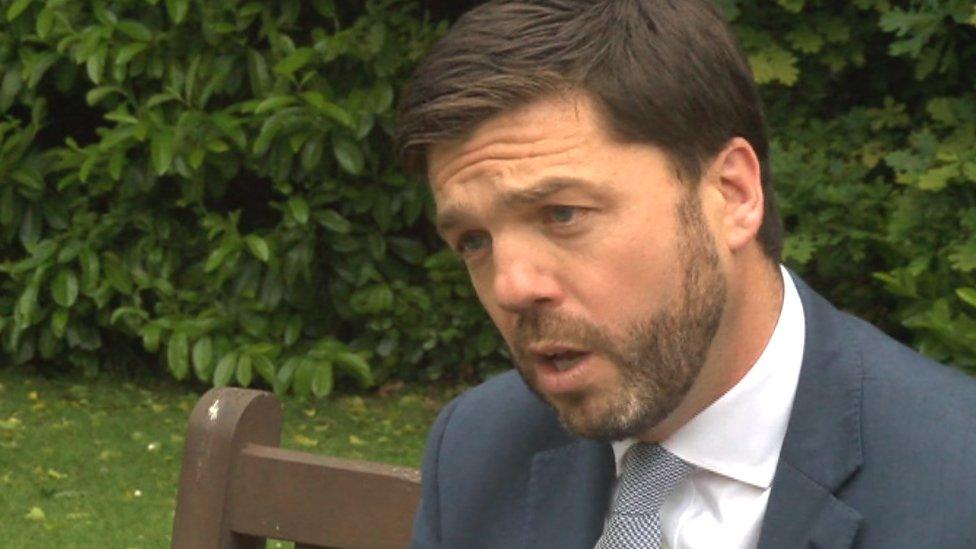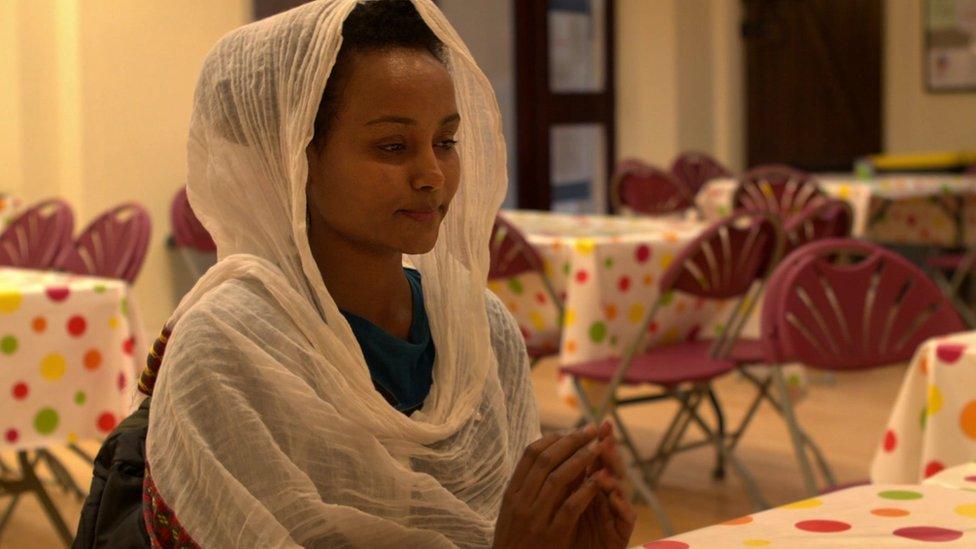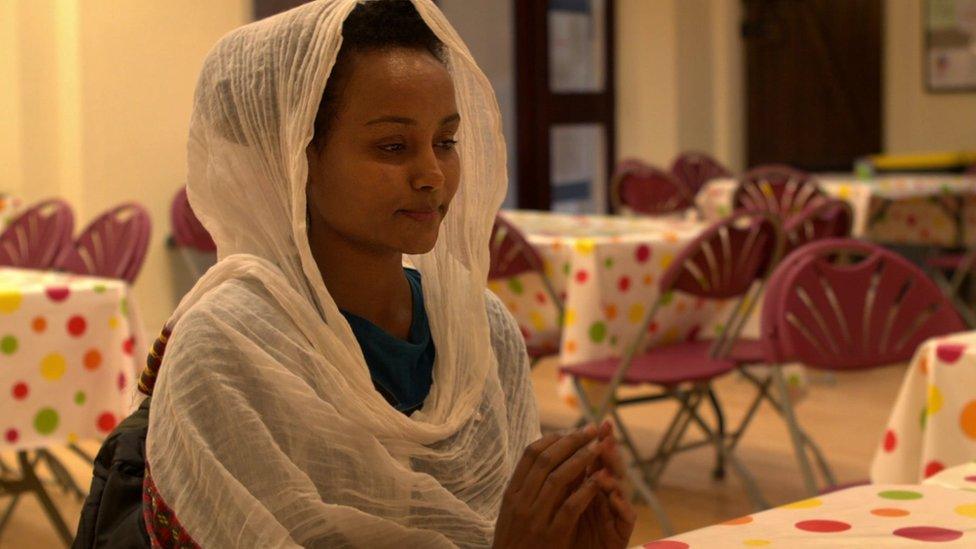Porn easier to talk about than faith, Stephen Crabb says
- Published

Watching porn or smoking drugs is easier for politicians to admit to than praying to God, Welsh Secretary Stephen Crabb has said.
In a lecture on faith and politics, he said talking about prayer was a "total no-go area" for a UK prime minister.
A practising Christian, Mr Crabb warned that faith was being pushed to the margins of national life.
He said it left a society "less resilient to the poison of the extremists".
Giving the Wilberforce lecture to the Conservative Christian Fellowship on Tuesday, Mr Crabb said: "Muslim families I have spoken to know that they face a battle to save their young people from the poison of extremism.
"They know they are not sighted on what their children are doing online, and fear them turning their backs on the mosque for other forms of religious exploration."
He added: "If you are a young Muslim growing up in east London, Cardiff or Luton, the only time - the only time - you will see your faith being mentioned in mainstream British media is in connection with death and violence.
"That has consequences, especially when there are complex issues of identity involved."

Leading cinemas have refused to show a Church of England advert featuring the Lord's Prayer
Warning of a "creeping intolerance" towards Christianity and religion, the Conservative Cabinet minister said "hard-edged secularism" had created "an enormous chilling effect" in workplaces that prevented people talking openly about their beliefs.
"I have never found it easy as a politician to talk about my faith," he said.
"In an age where every word is watched for something that can be construed as a gaffe, off-message or representing some bigoted or irrational attitude, it is a topic which many of us steer clear of.
"It kind of makes life simpler."
Mr Crabb criticised the decision of leading UK cinema chains not to show adverts for the Church of England.
"I believe this incident reflects a broader shift within our society which places one of our core freedoms - that is freedom of religion - under threat," he said.
- Published22 November 2015
